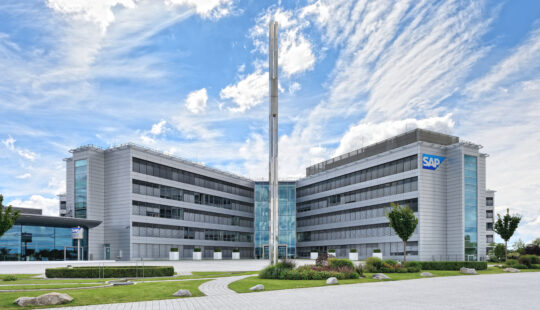In 57 of 108 countries, more than half of the workforce have jobs not matching their level of education. This situation is called skills mismatch. Seventy-two percent of this skills mismatch is attributed to under-education. In fact, hundreds of millions of young people find themselves unemployed and unemployable, lacking the right skills to take up the jobs available. The skills mismatch is a global challenge, and a lack of education is the root.
The theme of UNGA 77 was: “A Watershed Moment: Transformative solutions to interlocking challenges.” It stems from recognizing that the world is at a critical moment in history — just think of the complex crises like the COVID-19 pandemic and the war in Ukraine. These unprecedented humanitarian challenges have negatively impacted education, leaving thousands of children and young adults in worse positions than before 2020.
We are also at a tipping point in climate change. Climate-related disasters displaced three times more people than conflict and violence in 2020, jeopardizing education for millions of children. Climate change is also why the renewable energy sector is booming, opening new jobs with new challenges and skill requirements. But this is not industry-specific. The global economy is shifting toward high-skilled industries that demand green and digital skills, making the skill mismatch even bigger.
Without the necessary education and qualifications, many young people will be vulnerable to a lifetime of underemployment, lack of decent work opportunities, and significant impacts on their families’ health, education, and life outcomes.
In light of these and other global challenges, the SAP Corporate Social Responsibility (SAP CSR) team revisited its approach. Do you remember the education sweet spot? It’s the opportunity where SAP can bring the most value within the vast field of education. Our education sweet spot is about dedicating SAP’s core competencies while improving our contribution toward achieving the United Nations Sustainable Development Goals (UN SDGs) by 2030. We wanted to bridge the gap between what education teaches and what the world of employment requires.
For many years, SAP has believed that investing in education is investing in the skills and talents of the next generation. As a result, we build our new education efforts on a solid foundation. For example, just look at Europe’s largest digital skills youth initiative, Meet and Code, as well as Africa Code Week, which empowers millions of young Africans with digital skills.
Our new approach involves investing in innovative education models and fostering multi-stakeholder partnerships to enable pathways to employment and entrepreneurship among under-represented, under-served, and underprivileged youth. Simply put, we equip youth in need with the skills necessary to improve their chances of decent work and social mobility. Or even more simply, we build future skills to bring young people into employment.
A perfect example of how we advance our education efforts toward increased employability is our partnership with UNICEF and Generation Unlimited (GenU). Over the past three years, SAP has partnered with UNICEF in supporting GenU to upskill 1.8 billion young people and connect them to employment, entrepreneurship, and social impact opportunities. To date, 3 million youths in India, Turkey, and Vietnam have been reached.
This year, we have renewed the partnership for three more years in two ways. First, SAP will support GenU and the Youth Marketplace Agency (Yoma), an online learning platform, to enable young people to find jobs in the digital and green economy. In the first year, we plan to reach more than 500,000 young people with learning opportunities for soft and digital skills. Second, SAP, UNICEF, and GenU will pilot the educate to employ program, supporting learning-to-earning pathways in the digital and green economy for young people. The program equips participants with hard and soft skills needed to flourish in the global economy. Young people will gain on-the-job experience and critical future-oriented skills while benefiting from coaching and mentorship to help them launch their careers in the SAP customer and partner ecosystem. The new program will launch in early 2023.
Every year, UNGA enables us to reflect on what we have already achieved. The format allows us and our partners to consider what more we can do. Now, it’s time to tackle the skills mismatch with other businesses, governments, and NGOs to create equitable access to education and improve the employability of young people for the green and digital economy.
Alexandra van der Ploeg is global head of Corporate Social Responsibility at SAP.



